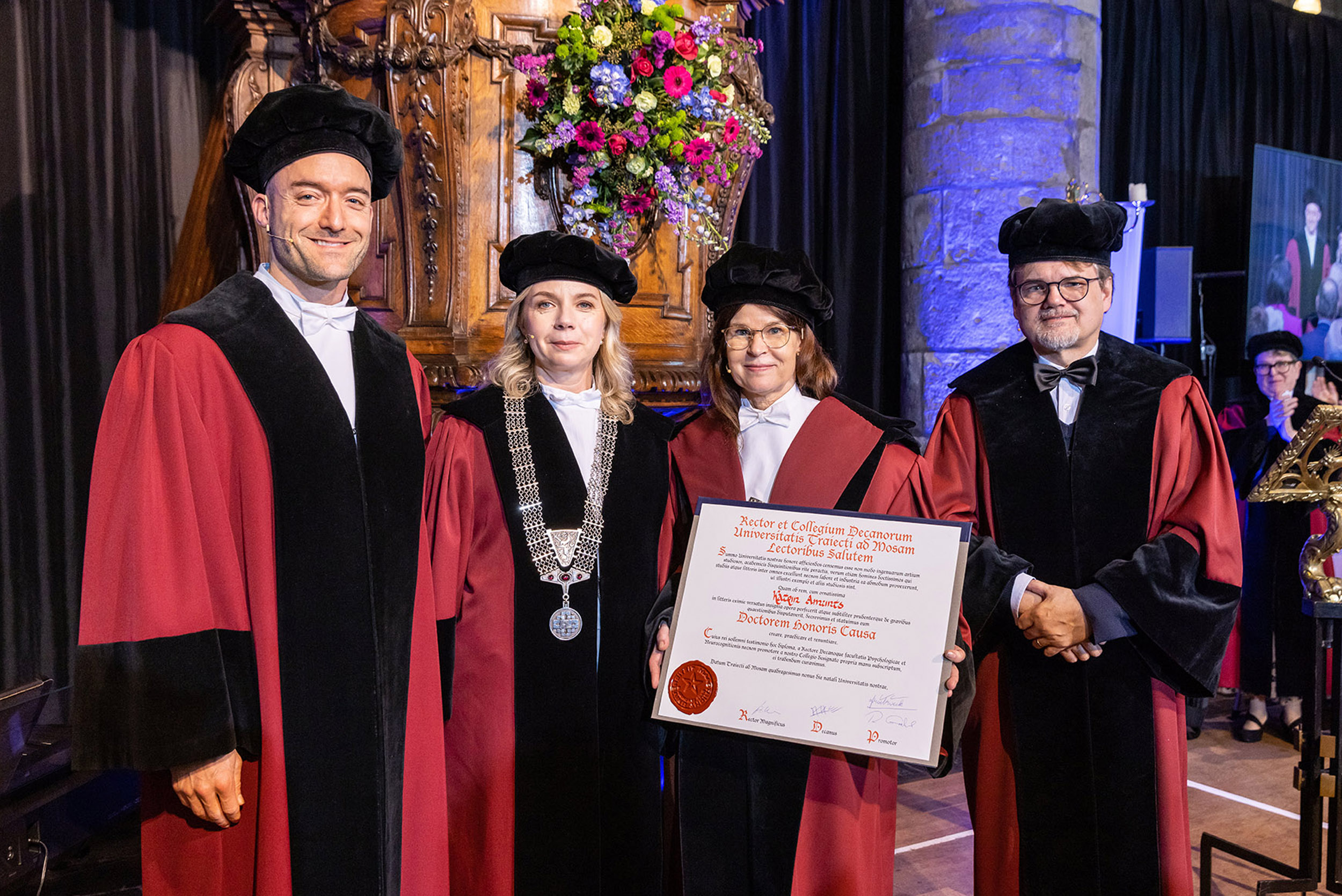Honorary Doctorate for Katrin Amunts at the 49th Dies Natalis
During the 49th Dies Natalis, we had the honour of awarding an honorary doctorate to Professor Katrin Amunts. As a leading neuroscientist, her groundbreaking research on the structure and function of the human brain has made an invaluable contribution to science.
A pioneer in brain research
Professor Amunts is a professor at Heinrich Heine University in Düsseldorf and leads the Institute of Neuroscience and Medicine at the Jülich Research Centre. There, she collaborates with an international network of scientists to develop innovative methods for understanding the complexity of the human brain. One of her most influential contributions is the development of BigBrain, an ultra-high-resolution 3D map of the human brain that provides new insights into the microscopic architecture of brain structures.
A well-deserved recognition
The honorary doctorate was presented by Professors Rainer Goebel and Alard Roebroeck from the Faculty of Psychology and Neuroscience, in recognition of Amunts’ pioneering work and her dedication to bridging science and technology. In her acceptance speech, Professor Amunts emphasised the importance of collaboration: "This achievement is not mine alone but the result of a dedicated team and a strong network of researchers who share a common vision: to fully understand the human brain."
Photo: Philip Driessen.

Also read
-
Andrés Caceres Solari on No room for Human Rights in Gaza and Ukraine: How the Law Legitimizes Urban Devastation
Pick Our Brains Session with Andres Caceres Solari

-
AMIBM hosts the final Realise-Bio conference
The Aachen Maastricht Institute of Biobased Materials (AMIBM) hosted last week the third and final Realise-Bio annual conference, bringing together the Dutch and German bioeconomy ecosystems at the Brightlands Chemelot Campus.

-
Macrophages as key to treating liver fibrosis
Sabine Daemen is researching how certain macrophages can slow down fatty liver disease and fibrosis in order to develop new therapies.
